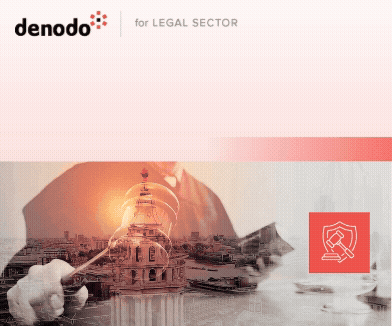Dr Justin Hill, partner & co-chair of IP at Dentons explains to Legal IT Insider how AI software platform Intanify improves the process of creating IP inventories and assessing IP opportunities and risks. Dentons will refer clients to Intanify for a fee and is piloting a white label offering for clients.
Dentons today (16 July) announced that it has partnered with AI fintech startup Intanify to accelerate and improve the process of creating IP inventories and assessing IP opportunities and risk. Dentons was an angel investor in Intanify’s £410,000 pre-seed funding round in July last year.
Intanify has developed knowledge graphs covering intellectual property (IP) due diligence and risk, together with Viktor Dörfler, professor of AI strategy at the Department of Management Science, University of Strathclyde Business School and a leading specialist in AI software. The concepts, which allow companies to spot risks before they materialise, or are identified by another party, acquirer or investor, are being incorporated into Intanify’s platform and have been piloted by Dentons.
Intanify was co-founded in 2021 by CEO Dylan Dryden and CTO Viet Lee. The platform now supports accelerated IP audit and due diligence processes for companies and IP professionals.
Dentons says that it will refer clients to Intanify, for which they will receive a referral fee, and it will also pilot a white label product that will provide these services under the firm’s brand underpinned by its legal IP expertise.We asked Dr Justin Hill, partner & co-chair of IP at Dentons (pictured below), to tell us more.

In partnering with Intanify, were you looking for a solution to solve a particular problem and what was the outcome you were looking to achieve?
We wanted to make the process of creating IP inventories and assessing IP opportunities and risks more accessible to innovative SMEs and other high-growth businesses.
These processes typically require a mix of different professional skills including, for example, IP lawyers, patent attorneys, trade mark attorneys, IP valuers and disjointed procedures.
While the insights are always very valuable to a business, the initial process for obtaining them is cumbersome and costs are often prohibitive. As a result, these exercises tend to be reserved for transactions above certain threshold values (e.g. a planned group restructuring or a later stage investment round).
We wanted businesses of all sizes to benefit from being better informed about their intangible assets, and to make the best decisions on what to prioritise.
Can you give us an example of how Intanify achieves that goal?
Our collaboration with Intanify allows innovative businesses to initiate their IP scanning processes by using AI-driven tools in an ‘intangible asset discovery process and IP evaluation’, to gain access to the necessary insights and summaries.
These insights and summaries help the business and its advisers to understand its IP, more effectively prioritise, and better communicate its status and strategy.
The business and its advisers can quickly establish IP values, IP optimisations, as well as manage any key opportunities and risks unearthed.
The process is expert-supervised and the nature of it means the companies can drive the process, while expert assistance is available at relevant points.
As well as directly helping the business, the results tend to be of interest to IP-based finance (equity and debt), insurance, investors and related stakeholders.
Who was involved in the pilot and what were the key findings?
The pilot is ongoing with new features being added and a number of SMEs have been involved with the pilot so far.
The AI tools have assisted companies with identifying potential value benchmarks for their various intangible assets (individually and in aggregate).
The latest features of the AI-tool can also point to opportunities to better protect (or manage) IP and a red flag system helps with identifying more serious risks or exposures connected with IP.
SMEs come out with an improved understanding the role of IP, and intangibles generally, within their business. They can also identifying where legal advice should be prioritised in support of business objectives.
How will the white label service work?
We are still in process of buildout and procurement for the white label service. Once this is finalised, the white label will be a version of Intanify AI-tools made available to Dentons’ clients under the Dentons brand.
Dentons intends to have its own interface through which responsible IP attorneys will have client-permissioned access to the results of the discovery process, key reports and insights to help accelerate and focus more complex projects like due diligence and IP strategy evaluations.










